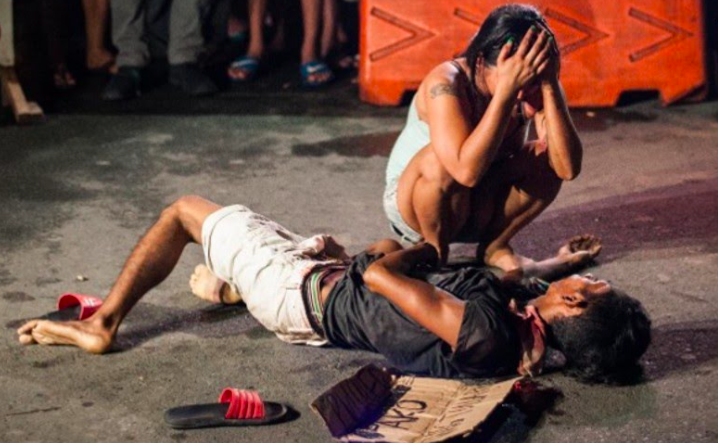
The majority of Filipinos are not buying the official line that all suspects killed in anti-drug operations had fought back against police.
A new survey by Social Weather Stations (SWS) found that 54 per cent of respondents agreed that: “Many of those killed by the police in the anti-drug campaign did not really fight against the police.”
Only 20 per cent disagreed with the statement, with the remainder “undecided”.
The nationwide survey was conducted from June 23 to 26, and included 1,200 respondents.
The same data also revealed that of the 54 per cent who agreed to the above statement, nearly half “strongly agreed”.
Geographically, skepticism over the police claim was highest in Metro Manila at 63 per cent, followed by 56 per cent in Luzon and 49 per cent in Visayas and Mindanao.
By social class, the poor were more likely to doubt the police version of events than those of higher status.
Anti-drug killings split opinion
The survey also found that many Filipinos believed those killed by policemen were not even drug dealers.
Forty-nine per cent of the respondents agreed that: “Many of those killed by the police in the anti-drug campaign are not really drug pushers.”
Twenty-three per cent disagreed with this statement, with the remainder undecided.
Moreover, 50 per cent of Filipinos agreed that: “Many are lying and pointing to their personal enemies as drug users or pushers in order to give an excuse for these people to be killed by police or vigilantes.”
Only 21 per cent of respondents disagreed, with 10 per cent saying they “strongly disagreed”. Twenty-eight percent were undecided.
Previous SWS surveys have also shown support for the drug war slipping.
In a statement today (Wednesday, September 27), presidential spokesman Ernesto Abella cast doubt on the survey, saying it asked “leading and pointed questions”.
“It seems the 2nd Quarter Social Weather Stations Survey contains leading and pointed questions that may have unduly influenced the answers of respondents,” he said.
“We expect pollsters to exercise prudence and objectivity to arrive at a closer approximation of public sentiment.”
